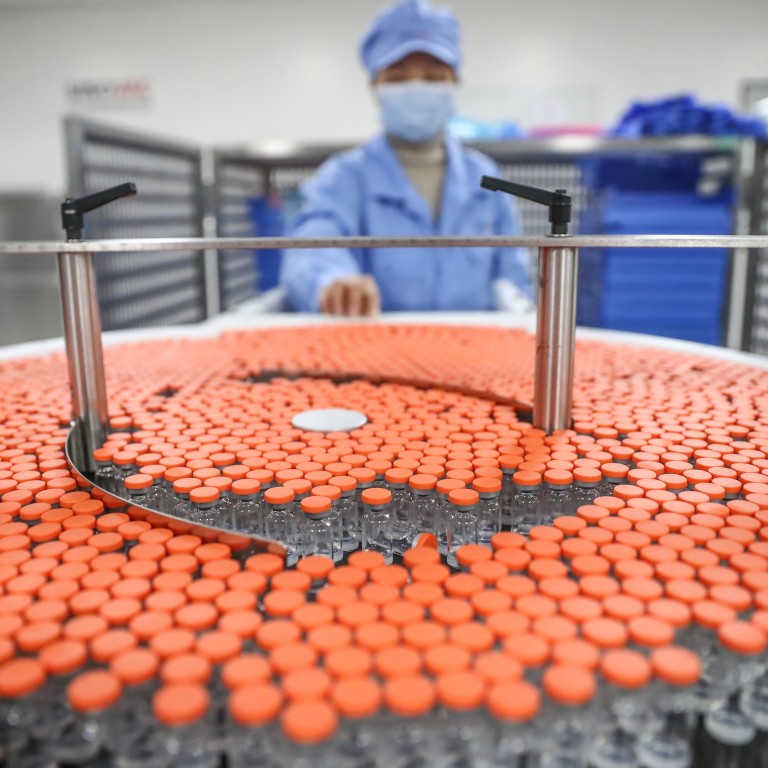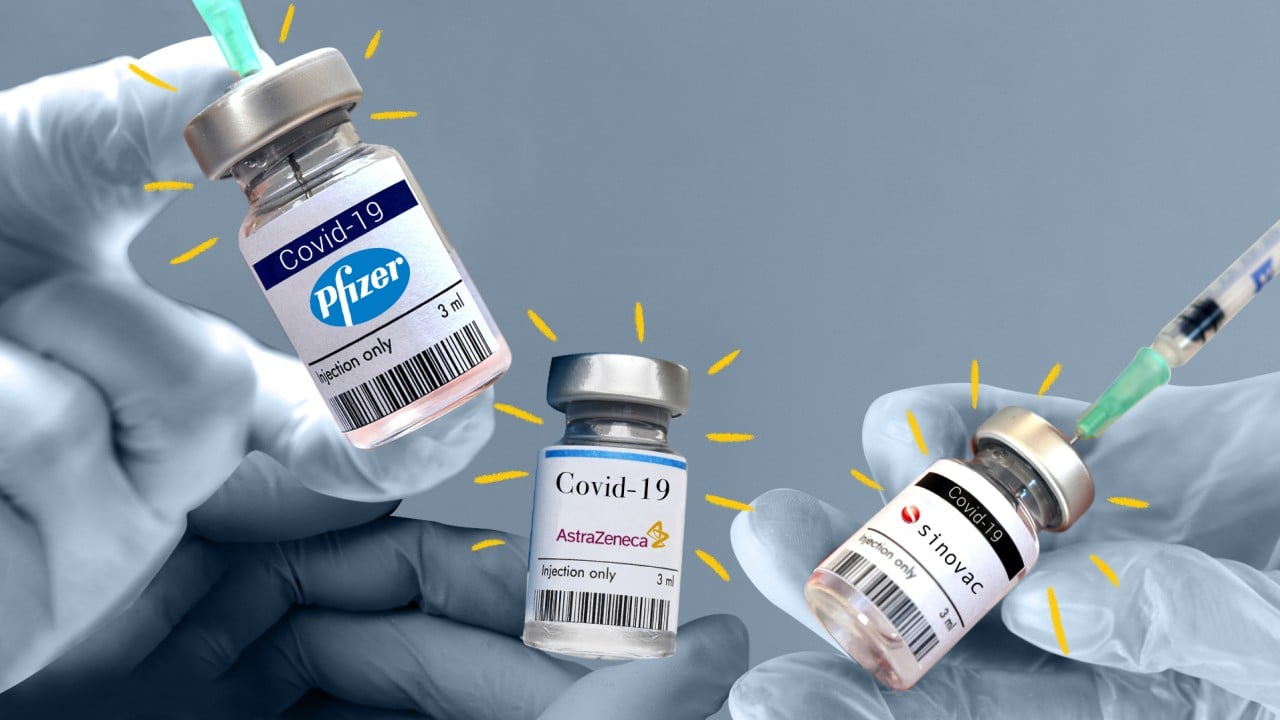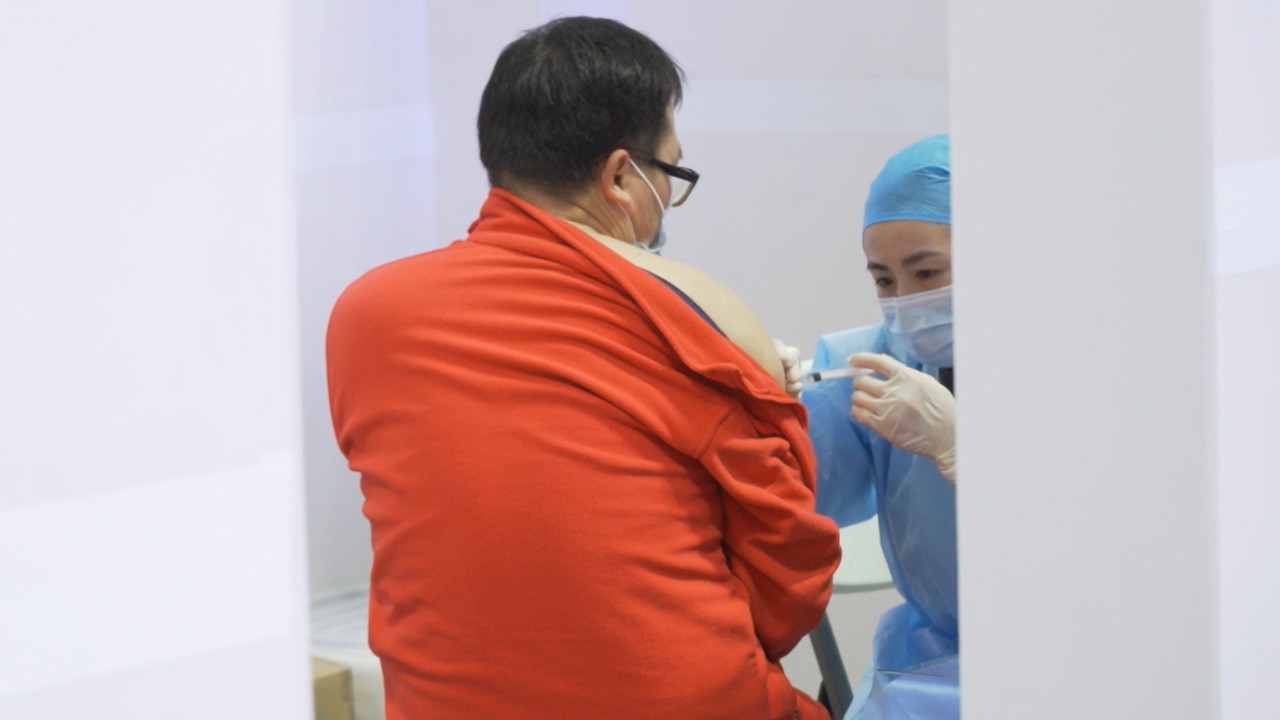
US sign-up for Covax a ‘shot in the arm’ for WHO vaccine scheme
- White House decision is a show of confidence at a critical moment for the distribution plan, analysts say
- But the United States also needs to ‘get its own house in order’ in the midst of the health crisis
The programme was being undermined by side deals between wealthier countries and vaccines makers, he said.
The support of the US – historically the biggest donor to global health, but absent from Covax after former president Donald Trump broke with the World Health Organization – is a major vote of confidence in the facility, according to analysts.
The move, part of a raft of decisions by US President Joe Biden in his first days in office, comes as vaccine roll-outs are starting worldwide – though Covax has yet to begin delivering its promised doses.
“In recent weeks I have heard from several member states who have questioned whether Covax will get the vaccines it needs, and whether high-income countries will keep the promises they have made,” Tedros said on Monday. Covax expects to deliver its first doses next month.
Coronavirus: is China ready for the mRNA vaccine revolution?
Health analysts said the US decision to add its name to the list of 190 economies in the plan would not ensure Covax would overcome the daunting problems of distributing 2 billion Covid-19 vaccine doses fairly to participating countries this year.
But it does give “an injection of credibility and energy into Covax at a time when it desperately needs it”, according to Thomas Bollyky, director of the global health programme at the Council on Foreign Relations in the US.
Antoine Flahault, director of the Institute of Global Health at the University of Geneva, said the US move would be seen as a vote of confidence in the plan, as some countries without access were anxiously watching vaccinations begin elsewhere and waiting for their first doses via Covax.
“By coming aboard without any hesitation from the first day of their new administration, the US sent a clear and positive message that Covax was the right way to help solve all these challenges,” Flahault said.
15 million people given Covid-19 vaccines in China as Spring Festival nears
The US, with the most coronavirus deaths and cases in the world, is among the countries that have started vaccinations. The government has locked in hundreds of millions of doses for Americans through heavy early investment in vaccine development and advance purchase agreements.
Such agreements were one of the factors jeopardising Covax, Tedros said in his address on Monday. The deals between countries and vaccine makers were driving up prices, with the companies prioritising approvals in richer countries, he said.
But the US move to join Covax – and approval for US$4 billion Covid-19 funding for Covax administrator Gavi, the Vaccine Alliance last month – makes it a benefactor. Britain, Canada, Germany, Saudi Arabi, and Japan are among other strong backers of the programme, which intends to finance vaccines for the poorest 92 countries through donations, while the rest will buy doses through the facility.
“In the biggest global health crisis arguably in the last century, the US really has been absent from global efforts to control the pandemic and distribute the interventions that could make the biggest difference for the world’s poorest and most vulnerable people,” Bollyky said. “This is a signal that the US will rejoin that fight.”

09:50
SCMP Explains: What's the difference between the major Covid-19 vaccines?
The US role in Covax is not clear but the Biden administration also said on Thursday that the US, once it had a sufficient supply domestically, would create a framework to donate its surplus doses overseas including through Covax.
Announcing the US commitment earlier that day, Biden’s chief medical adviser Anthony Fauci also said that the US would not withdraw from WHO, the UN’s health agency, as the Trump administration had intended.
Trump had accused the WHO of bungling its early response to the outbreak because it was overly deferential to China.
Biden has acknowledged that the WHO needs change but that this would be better achieved by the US remaining a member.
US Vice-President Kamala Harris also spoke to Tedros that day about Washington’s plans within the organisation.
The administration’s decision to join Covax comes as vaccine makers from China and Russia have been quick to supply doses of their own vaccines to developing countries, while their governments include vaccines on diplomatic agendas.
Russia has not joined Covax. China signed on in October, though there has been no announcement of any financial support beyond the payment to secure the roughly 15 million doses it is expected to receive through the facility.

01:44
Shanghai gives high-risk groups Covid-19 vaccines
Adam Kamradt-Scott, an associate professor specialising in global health security at the University of Sydney in Australia, said the US would reap a diplomatic benefit from its role in Covax as Biden seeks to restore American leadership.
“It’s a very clear sign that the Biden administration is committed to working with international partners and stakeholders to defeat the coronavirus,” he said, adding that this would also signal US commitment to countries in need of vaccine aid.
But Naor Bar-Zeev, deputy director at the International Vaccine Access Centre at Johns Hopkins University in the US, said the administration would also need to stay focused at home as it grapples with distributing vaccines amid its health crisis.
“The US needs to get its house in order and support its population,” Bar-Zeev said. Still, when it came to supporting vaccine access overseas, “the US is strong enough to do both”.

